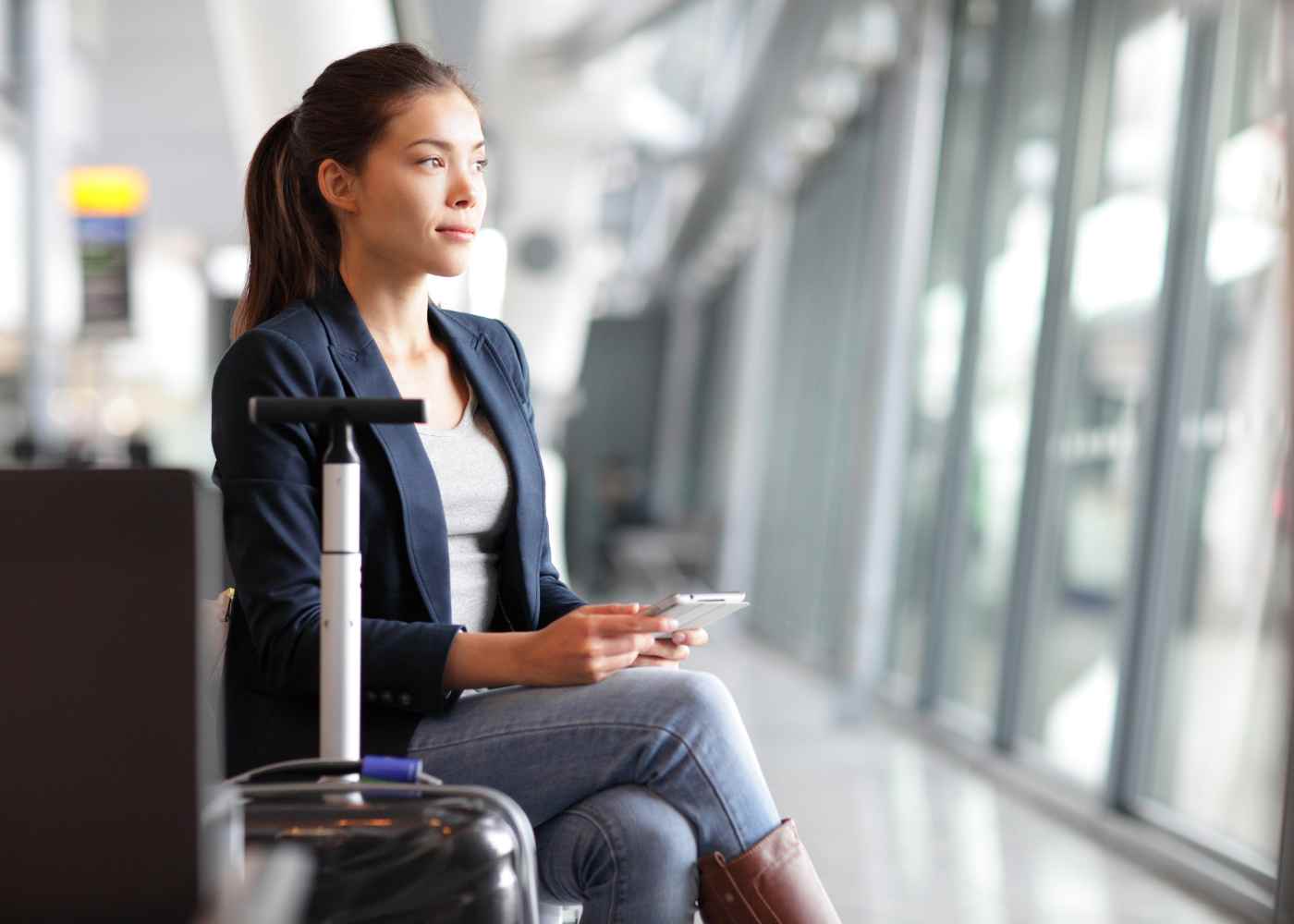Traveling can be an exciting experience, but it is important for women to understand the potential impacts that travel can have on their menstrual cycle. Women™s bodies are sensitive to changes in environment and routine, which means traveling may lead to disruptions in their menstrual cycles. Knowing how to prepare and manage any possible changes while traveling is essential for a positive experience. By understanding the factors that cause menstrual changes during travel, such as jet lag and dietary changes, women can take steps to minimize these effects or prevent any problems from arising. With some preparation and planning ahead of time, women can make sure they enjoy their trip without worrying about the disruption of their periods.

Factors That Impact Menstrual Cycles While Traveling
Changes in environment and climate can have a significant
impact on menstrual cycles. Women are sensitive to the humidity, temperature,
and altitude of their surroundings which may lead to shifts in normal hormone
levels and changes in menstrual cycles. Furthermore, rapid changes between
climates or extreme temperatures can cause imbalances that affect menstruation.
When traveling it is important for women to take extra care with clothing
choices that keep them comfortable even when the climate varies greatly from
what they are used to at home.
Air travel has been known to be one of the biggest culprits
for disrupting regular menstrual cycles due to jet lag caused by crossing
multiple time zones quickly. Jet lag affects hormones like melatonin which
regulates sleep patterns as well as cortisol which helps regulate stress levels
within the body both of which can contribute to irregular periods while
traveling if not managed properly through good sleep hygiene practices such as
limiting alcohol consumption before bedtime and avoiding screens close to
bedtime.
Sleep and exercise during travel also play an important role
in maintaining regular menstrual cycles while on-the-go; getting enough restful
sleep ensures proper hormonal balance while staying active reduces stress
levels thus helping support the optimal functioning of reproductive organs
necessary for healthy menstruation. Additionally, incorporating relaxation
techniques into daily routines during travel can help reduce anxiety further
aiding with hormonal regulation crucial for regular periods while away from
home.
It's crucial to monitor your diet when traveling or immersing yourself in different cultures. Ingesting new foods or drinking tap water can result in digestive problems, potentially leading to irregular periods as a result of hormone production changes. To prevent such issues, it's advisable to opt for familiar foods and ensure that meals are cooked thoroughly before consumption, particularly when away from home.
Preventing Problems During Your Travel
In addition to maintaining regular meals and snacks,
exercising regularly, and limiting stress and jet lag symptoms during travel,
women should also be mindful of the impact that alcohol can have on their
menstrual cycles. Alcoholic beverages contain high levels of sugar which can
lead to a disruption in hormone production leading to irregular menstruation.
Furthermore, drinking excessively can cause dehydration which is another common
cause for menstrual irregularities. Therefore it is best practice for women to
limit or avoid alcoholic drinks while traveling if possible in order to
maintain regular periods throughout their journey.
Traveling often causes physical fatigue due to lack of
quality rest from changes in sleeping environments or long days exploring new
places; this exhaustion can lead to further hormonal imbalances resulting in
missed periods or other irregularities within one™s cycle making it important
for travelers to prioritize sufficient amounts of restful sleep even when away
from home. Additionally carrying items like ear plugs or eye masks will help
provide a sense of familiarity allowing better chances for quality sleep while
on-the-go thus supporting optimal functioning hormones necessary for healthy
menses during trips.
Last but not least being aware of any existing medical conditions before embarking on an adventure is key; some diseases such as Polycystic Ovary Syndrome (PCOS) may cause hormonal imbalances leading towards disruptions within one™s cycle already so taking extra caution with managing stress levels and eating habits while abroad becomes essential when traveling with certain pre-existing conditions affecting menses adversely.

Managing Menstrual Changes While Traveling
In addition to managing stressors associated with travel,
women should also look into over-the-counter remedies for menstrual cramps that
can help reduce the intensity of pain while on the go. Nonsteroidal
anti-inflammatory drugs (NSAIDs) such as ibuprofen and naproxen are typically
safe and effective in relieving cramps during travel and do not require a
prescription. Additionally, some women may find relief from taking Vitamin B6
or magnesium supplements when feeling particularly uncomfortable due to
menstrual pain. Lastly, heat packs applied directly to the abdomen can be
helpful in providing temporary comfort against painful contractions caused by
periods.
If symptoms persist despite at-home treatments or become
worse than usual it is important for women to visit a doctor right away as this
could signal a more serious underlying health issue which would need
professional medical attention immediately. Irregularities within one™s cycle such
as prolonged bleeding or missed periods lasting longer than normal may indicate
an infection or condition requiring urgent diagnosis so seeking out medical
advice is always recommended if any signs of discomfort arise while traveling
abroad.
Overall, understanding how traveling affects menstrual cycles can help prevent any undue distress during trips far away from home allowing for smoother journeys free from worry about irregularities caused by changes in environment and routine; with proper planning ahead of time including packing necessary supplies like medications, heat packs, vitamins etc., maintaining regular sleep patterns even when crossing multiple timezones quickly, monitoring dietary habits closely along with staying active regularly travelers will have greater chances of minimizing disruptions within their cycles making travels all around enjoyable experiences!

Tips for Planning a Trip During Menstruation
When planning a trip during menstruation, it is important to
take into account factors such as diet, sleep habits, physical activity levels,
and stress management. By taking the time to plan ahead and prepare for any
potential changes in these areas while traveling, women can ensure that their
menstrual cycle remains regular throughout their journey.
One of the most important things to consider when preparing
for a period-friendly trip is packing the right supplies. This includes
bringing along enough menstrual products such as tampons or pads so they don™t
have to worry about running out while on vacation. It can also be helpful to
bring along over-the-counter medication like ibuprofen or naproxen sodium which
may provide relief from cramps associated with periods if needed during travel.
Lastly carrying items like heat packs applied directly against the abdomen area may
help reduce the intensity of painful contractions caused by menses making the overall
experience more comfortable even when away from home.
Staying hydrated while traveling is another key component
for managing periods comfortably; dehydration can lead towards hormonal
imbalances affecting menses adversely therefore drinking plenty of water
throughout the day will help minimize chances of disruption within one™s cycle due
to lack of proper hydration necessary for optimal functioning organs involved
in reproductive system healthily thus supporting regularity within cycles even
when far away from home. Additionally eating healthy meals wherever possible
including snacks rich in magnesium (e.g., nuts, seeds) and Vitamin B6 (e.g.,
bananas) is recommended since they both play crucial roles in hormone
production essential for healthy periods even when abroad.
Finally getting enough restful sleep each night is also
essential not only for maintaining regular cycles but also for keeping energy
levels high during trips; jet lag affects hormones like melatonin which
regulates sleep patterns as well as cortisol which helps regulate stress levels
within the body both of which can contribute towards irregularities within one™s
cycle if not managed properly through good sleep hygiene practices such as
limiting alcohol consumption



